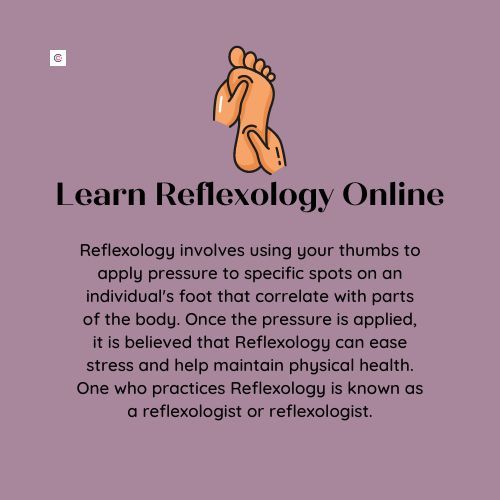Are you interested in becoming a certified reflexologist, but finding it difficult to fit traditional classes into your busy schedule? Look no further, because Centre of Wellness has the perfect solution for you! With their online classes, you can now learn the art of reflexology from the comfort of your own home. Whether you’re a busy professional, a stay-at-home parent, or someone who simply prefers the convenience of online learning, Centre of Wellness offers a comprehensive and flexible program that can help you achieve your goals. Visit their website at https://beautytrainingcoursesonline.com/courses-overview/ to start your journey towards becoming a certified reflexologist online today!
Certification Requirements
Becoming a certified reflexologist requires a combination of education, training, practical experience, and examinations. These requirements ensure that you have the necessary knowledge and skills to provide reflexology treatments effectively and safely.
Education and Training
One of the first requirements to become a certified reflexologist is to complete an accredited reflexology program. These programs provide a comprehensive understanding of the theory and practice of reflexology. You will learn about the key concepts and techniques used in reflexology, as well as the various pressure points on the feet, hands, and ears.
Practical Experience
In addition to education and training, practical experience is crucial for becoming a certified reflexologist. Many programs require students to complete a specified number of practical hours, where they can apply their knowledge and skills in a real-world setting. This hands-on experience allows you to refine your techniques and develop a deeper understanding of reflexology.
Examinations
To obtain certification, you will need to pass examinations that assess your knowledge and proficiency in reflexology. These exams may include both theoretical and practical components, testing your understanding of reflexology principles, techniques, and ethics. Passing these examinations demonstrates your competence and ensures that you are well-prepared to practice reflexology professionally.
Choosing an Accredited Program
Selecting the right accredited program is a crucial step in becoming a certified reflexologist. Accreditation ensures that the program meets specific standards of quality and effectiveness. Here are some factors to consider when choosing an accredited program:
Researching Online Programs
If you are considering online education, it is essential to thoroughly research the available programs. Look for programs that are reputable, have positive reviews, and offer comprehensive curriculum. Reading testimonials and talking to current or former students can provide valuable insights into the program’s quality and effectiveness.
Accreditation and Recognition
Check if the program you are considering is accredited by a recognized accrediting body. Accreditation ensures that the program meets the required standards of education and training. Additionally, some certifying organizations may only recognize certifications obtained from accredited programs. Therefore, choosing an accredited program increases your chances of gaining certification and enhances your professional credibility.
Curriculum and Course Structure
Evaluate the curriculum and course structure of the program. A well-designed curriculum should cover a wide range of topics, including anatomy, physiology, reflexology techniques, client assessment, and ethics. Look for programs that offer a balanced blend of theoretical knowledge and practical skills. Consider your individual learning style and preferences to find a program that aligns with your needs.
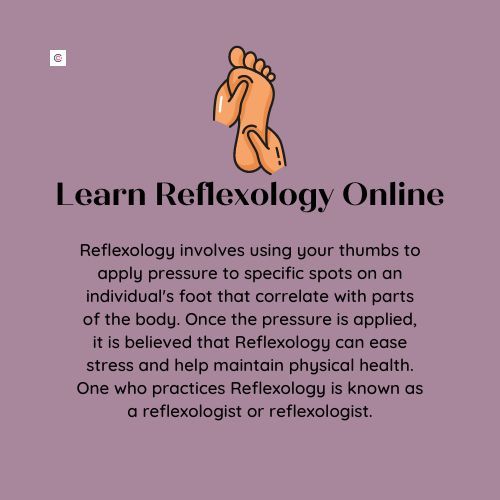
This image is property of s3.amazonaws.com.
Online Reflexology Courses
Online reflexology courses have become increasingly popular, providing a flexible and accessible way to learn reflexology. Here is an overview of what you can expect from online courses:
Overview of Online Courses
Online reflexology courses typically offer a comprehensive curriculum that covers all the essential aspects of reflexology. These courses are designed to provide you with a solid foundation in reflexology theory and practice. You will learn about the history of reflexology, its benefits, and the techniques used to stimulate reflex points.
Course Duration and Schedule
Online courses offer flexibility in terms of duration and schedule. Some programs may offer self-paced learning, allowing you to progress through the materials at your own convenience. Others may have set timelines for completion, providing structure and accountability. Consider your availability and commitment level when choosing a course that suits your needs.
Course Materials and Resources
Online courses provide various materials and resources to support your learning. These may include video lectures, interactive modules, written materials, case studies, and quizzes. Look for courses that offer a diverse range of resources to cater to different learning styles and preferences. Additionally, check if the course provides ongoing support and access to instructors for any questions or clarifications.
Online Training Platforms
There are several online platforms where you can find reflexology courses. Here are a few popular ones:
Centre of Wellness
Centre of Wellness offers online reflexology courses that are designed to provide comprehensive training in the field. Their courses cover essential topics such as foot anatomy, reflexology techniques, and client communication. The courses are self-paced, allowing you to learn at your own convenience. Centre of Wellness has a reputation for providing high-quality education and is recognized by certifying organizations.
Beauty Training Courses Online
Beauty Training Courses Online also provides reflexology training programs that can be completed online. These programs offer detailed instruction on reflexology techniques, foot mapping, and client consultation. The courses are designed to provide a balance of theory and practical application. Beauty Training Courses Online has garnered positive reviews for their engaging and informative online courses.
Other Online Platforms
In addition to Centre of Wellness and Beauty Training Courses Online, there are various other platforms where you can find online reflexology courses. These platforms may offer a range of training programs, including introductory courses, advanced certifications, and specialized workshops. Take the time to explore different platforms, compare their offerings, and read reviews to ensure you find a reputable and effective program.
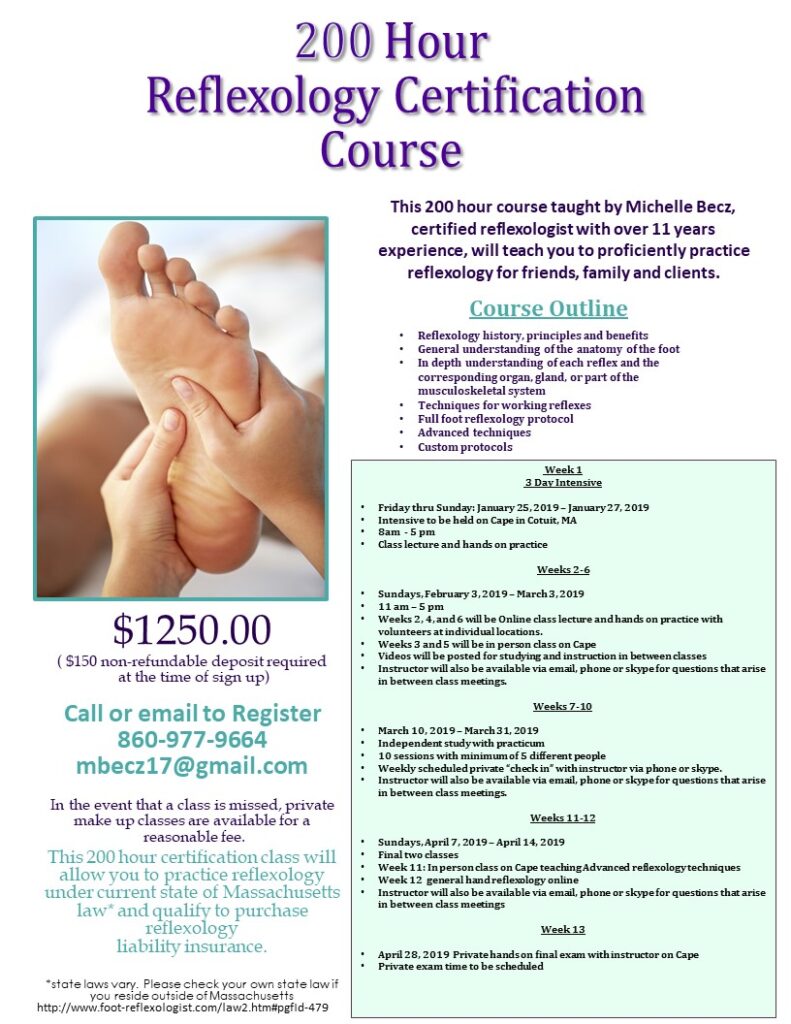
This image is property of images.squarespace-cdn.com.
Benefits and Limitations of Online Reflexology Training
Online reflexology training offers several benefits, but it is essential to consider the limitations as well:
Flexibility and Convenience
One of the most significant advantages of online reflexology training is the flexibility it provides. You can access course materials and lectures at any time and from any location. This flexibility allows you to learn at your own pace and fit your studies around your existing commitments.
Cost-Effectiveness
Online courses often have lower tuition fees compared to in-person programs. This cost-effectiveness makes online reflexology training more accessible to individuals who may not have the financial resources to attend traditional courses. Additionally, you can save on transportation and accommodation expenses since you can study from the comfort of your own home.
Lack of Hands-on Experience
One limitation of online reflexology training is the lack of hands-on experience. Reflexology is a practical skill that requires hands-on practice to develop proficiency. While online programs may include videos and demonstrations, the absence of in-person guidance and supervision can make it challenging to master the techniques. It is essential to supplement online training with practical workshops or internships to gain valuable hands-on experience.
Practical Training Requirements
To complement your online reflexology training, practical experience is crucial. Here are some practical training requirements to consider:
Hands-on Workshops
Attending hands-on workshops can provide you with the practical skills and experience necessary to become a proficient reflexologist. These workshops typically offer guided practice sessions, allowing you to refine your techniques under the supervision of experienced instructors. Look for workshops that focus on practical application and offer opportunities for hands-on practice.
Practicum or Internship
Some reflexology programs may require you to complete a practicum or internship as part of your certification requirements. A practicum or internship allows you to work with actual clients under the supervision of a qualified reflexologist. This hands-on experience helps you develop client interaction skills, gain confidence in your abilities, and apply your theoretical knowledge in a real-world setting.
Supervised Case Studies
Supervised case studies involve working with real clients and documenting the reflexology treatments performed. This practical requirement allows you to apply your knowledge and skills in a controlled environment under the guidance of a mentor or supervisor. Through supervised case studies, you can further enhance your clinical skills and develop a deeper understanding of client assessment and treatment planning.
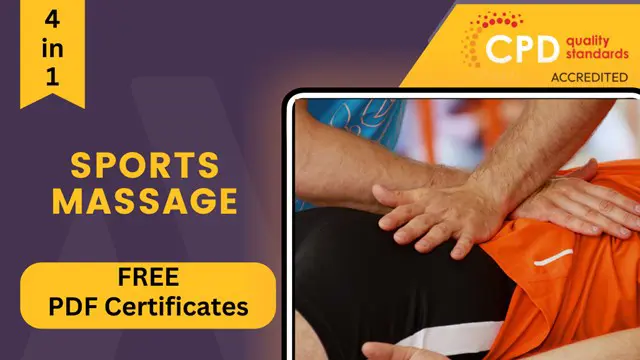
This image is property of resources.reed.co.uk.
Seeking Certification
Once you have completed the necessary education, training, and practical experience, you can pursue certification. Here is an overview of the certification process:
Application Process
To become certified, you will need to submit an application to the certifying organization of your choice. The application typically includes proof of completion of an accredited reflexology program, transcripts, and any necessary documentation of practical experience. Ensure that you carefully review the application requirements and submit all the necessary documents to avoid any delays or rejections.
Certifying Organizations
There are several certifying organizations that offer reflexology certifications. It is essential to choose a reputable organization that is recognized and respected within the reflexology community. Research the different organizations, their certification requirements, and the benefits of obtaining certification from each. Additionally, consider any specific requirements or preferences of the organizations when selecting a reflexology program.
Examination Process
Certifying organizations often require candidates to pass an examination to obtain certification. These exams assess your knowledge and skills in reflexology and may include both written and practical components. It is essential to prepare adequately for the examination by reviewing your course materials, practicing reflexology techniques, and seeking additional study resources if necessary. Successful completion of the examination demonstrates your competence and dedication to the field.
Continuing Education and Specializations
Once you have become a certified reflexologist, continuing education is essential to stay updated with the latest developments in the field. Consider the following options for further education and specialization:
Advanced Courses and Certifications
Advanced courses and certifications allow you to deepen your knowledge and expand your skill set. These programs may focus on specialized techniques, advanced theories, or specific populations such as prenatal or geriatric clients. Pursuing advanced education demonstrates your commitment to professional growth and may open up more opportunities for career advancement.
Specialized Areas of Reflexology
Reflexology encompasses various specialized areas that you can choose to focus on. Examples include fertility reflexology, sports reflexology, or palliative care reflexology. Specializing in a specific area allows you to cater to the unique needs of clients and differentiate yourself in the market. Consider your interests and passion when exploring different specialized areas to find one that aligns with your career goals.
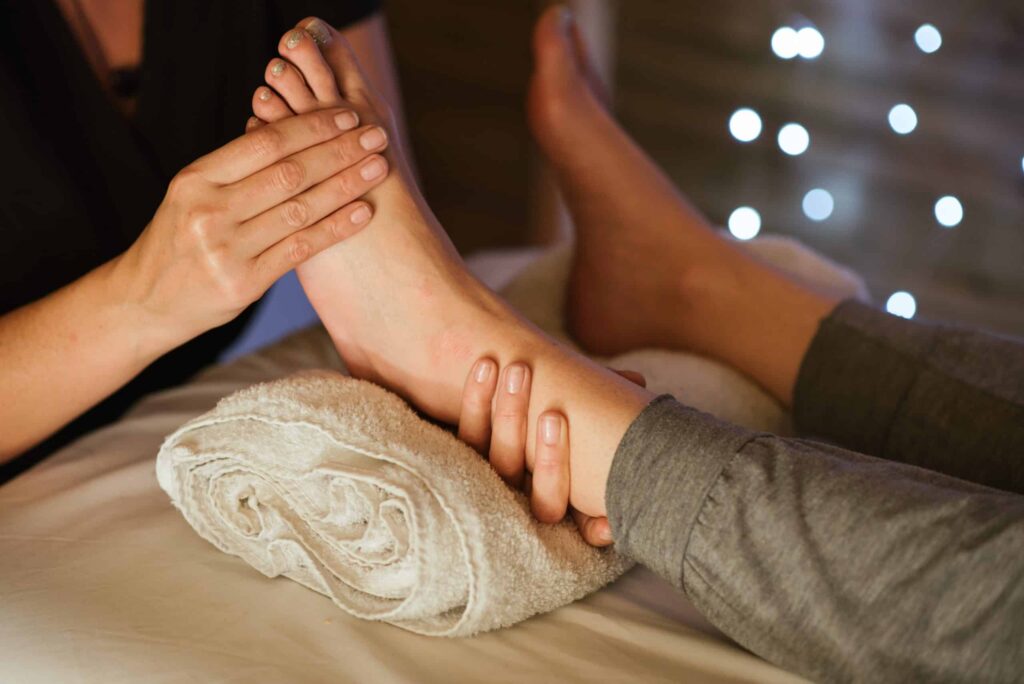
This image is property of digitaldefynd.com.
Career Opportunities
Becoming a certified reflexologist opens up a range of exciting career opportunities. Here are a few potential career paths:
Private Practice
Many reflexologists choose to start their private practice, where they can work with clients on a one-on-one basis. Opening your own practice allows you to create a personalized experience for your clients and build long-term relationships. As a private practitioner, you have the freedom to set your own schedule, rates, and treatment approaches.
Spas and Wellness Centers
Spas and wellness centers often employ reflexologists to provide their clients with holistic treatments. Working in a spa or wellness center allows you to be part of a larger healthcare team and collaborate with professionals from other disciplines. This environment can provide a steady stream of clients and opportunities for professional development.
Hospitals and Rehabilitation Centers
Some hospitals and rehabilitation centers incorporate reflexology into their healthcare services. Working in these settings allows you to collaborate with medical professionals and contribute to the overall well-being of patients. Reflexology can complement traditional medical treatments and provide additional relief for patients with various conditions.
Conclusion
Becoming a certified reflexologist is an attainable goal, and online training can be a valuable tool in achieving it. By choosing an accredited program, supplementing your training with practical experience, and seeking certification, you can embark on a rewarding career in reflexology. Remember to continue your education, explore specialized areas, and consider the various career opportunities available. With dedication, passion, and ongoing learning, you can build a successful and fulfilling career as a certified reflexologist.

